10 Tips for Taking Care of a Parent with Dementia at Home
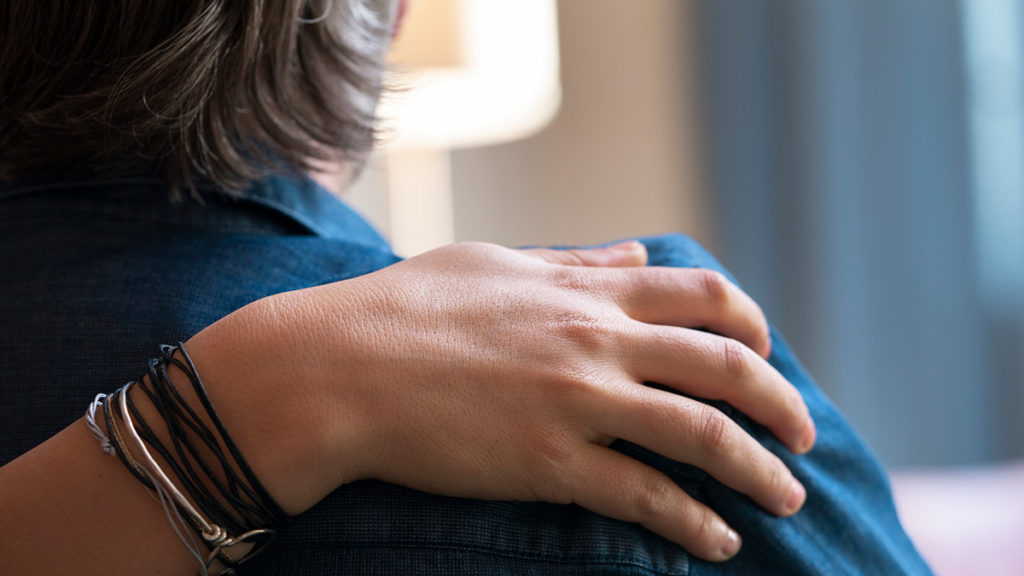
Caring for elderly parents with dementia is one of the most daunting tasks for many people, but one you can manage when you have the proper knowledge and support. As the caregiver, you need to arm yourself with enough information that properly prepares you for the road ahead.
Rapid changes in the person with dementia’s behavior plus stress, burnout, and anxiety make it nearly impossible for anyone to deal with this alone. In this article, we’ve highlighted ten essential tips you should remember as you care for a parent with dementia.
Make Changes in Your Home to Reduce Fall Risk
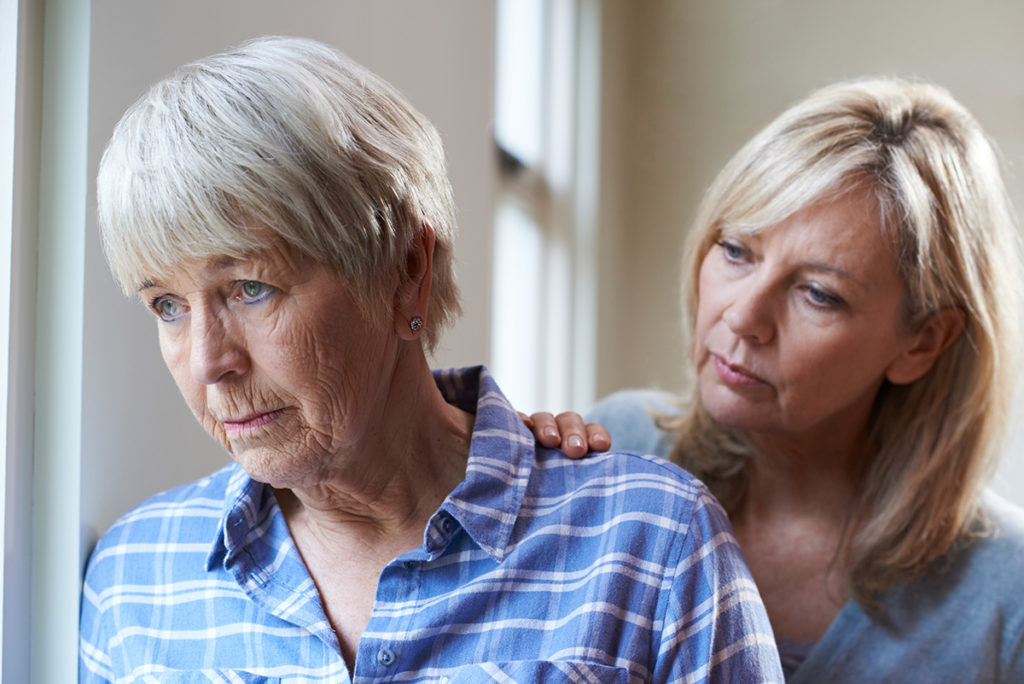
As the disease progresses, people with dementia find it difficult to navigate home spaces on their own. Your aging parent could have a bad fall and sustain severe injuries as they attempt to move around the house independently. The most important thing you need to do is tweak the arrangement of their physical environment. You can take a cue from our functionally designed spaces at The Breckinridge that allow Residents to move safely and with ease.
Let’s go through a few things you should do.
First, make sure all the rooms in your house are well-lit and remove area rugs and other tripping hazards.
For the bathroom area, consider installing a walk-in tub/shower to make bathing more accessible. Another detail is adding color to the restroom by painting the edges of the surfaces, so the sharp edges stand out to help keep your loved one from colliding with them and getting hurt.
Learn about Dementia and its Treatments
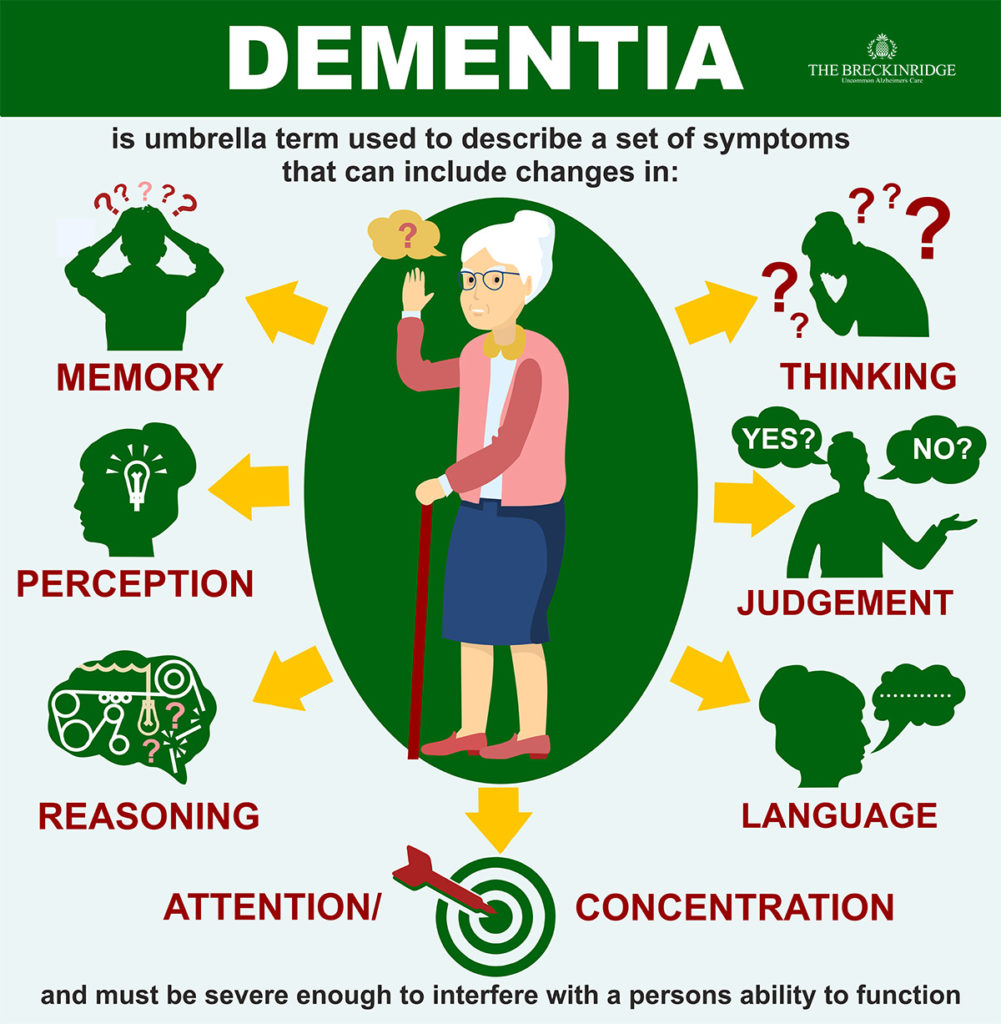
Dementia is a life-changing condition that affects every aspect of your parent’s life. To provide the best care for them, you need to understand the “ins and outs” of this illness. There are many helpful resources and communities that can provide the knowledge and support you need. Your local Alzheimer’s Association is a good place to start.
One of the most important things you should know is that dementia progresses through several different stages. Although every person’s experience with the disease is different, some common behavioral and personality changes are expected.
While your loved one will experience some signs of dementia at the early stage, such as light forgetfulness or memory loss, they can still move around without assistance. However, in the middle to late stages, they will require professional help to maintain their well-being. When this time comes, you might have to hire an in-home caregiver, or more likely move them into a memory care facility, or some form of assisted living.
With the right knowledge, you can make better dementia care decisions for your parents.
Understand that It is Normal to Feel High Levels of Caregiver Stress
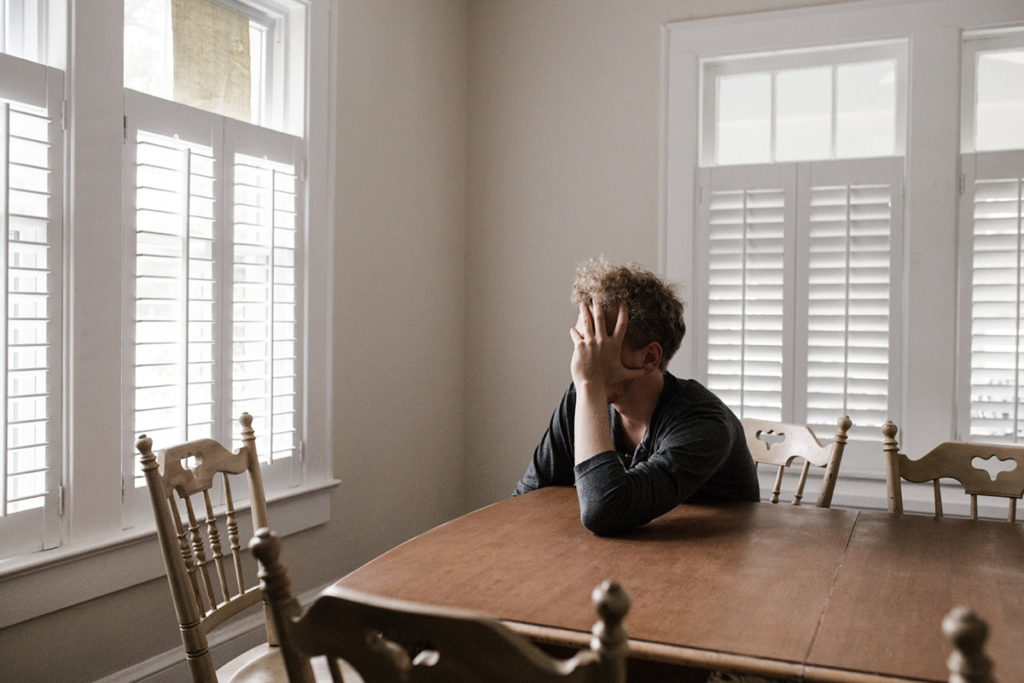
Caring for someone with dementia can be demanding and sometimes overwhelming. It’s normal to experience high pressure and anxiety levels as you come to terms with the changes your loved one is experiencing.
One of the best things you can do as a care provider is finding someone to help you cope with the pressure. You can learn strategies for dealing with stress from professionals in the field. If possible, seek mental health support from a therapist or support group.
Seek Support from Your Family, Friends, and Other Caregivers
To cope with caregiver stress, consider joining a senior care support group. This is a great way to connect with others experiencing the same thing you are. They can help you discover the best methods of coping with the requirements of your loved one with dementia.
Also, remember that there’s nothing wrong with asking for help from your friends and other family members. Don’t overwhelm yourself by trying to do everything on your own. You should schedule time for self-care and observe regular breaks to avoid burnout.
Have Regular Meetings with Your Family
When it comes to supporting a person with dementia, everyone in the family has a role to play. While you might be the primary caregiver, every member of your family should be involved in one way or another.
As the different stages progress, you should meet with your family to discuss how caring for a person with dementia affects everyone. These meetings provide the perfect opportunity for family members to go over individual responsibilities, resolve issues, and make long-term care plans.
Prevent Your Parent from Wandering
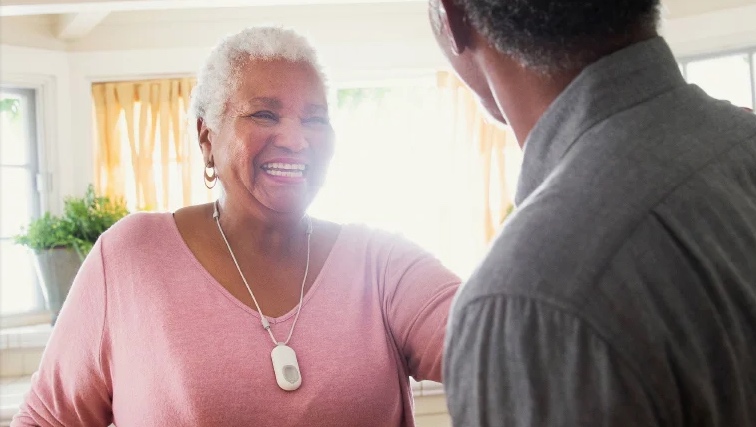
It’s common for people with dementia to wander off from their environment and even get lost or injured in the process. There are various safety and security precautions you can take to prevent this.
As you make adjustments to your home, consider installing motion sensors at all exit points. These sensors would alert you when your parent tries to leave the house without notice. You can also attach slide bolt locks on all doors.
Consider signing up your loved one for the Alzheimer’s Safe Return Program as an additional security precaution. The Alzheimer’s Safe Return Program facilitates the safe return of wandering or lost people with dementia, which gives added protection for their safe return home if they manage to bypass the security systems and wander off.
Take Advantage of Any Available Resources

As mentioned earlier, there are many resources available to help you provide the best care for your loved one. By broadening your knowledge of symptoms of dementia such as cognitive decline, you become better equipped to handle the behaviors associated with Alzheimer’s disease.
The good thing is most of these resources are free, while others may have a small access fee. So, don’t hesitate to sign up for courses, subscribe to newsletters (like our own), call helplines, attend webinars, join support groups, and ask questions to other caregivers in your community. You’d be surprised at how well-equipped you’ll become!
Prepare for the Later Stages of Dementia

The later stages of Alzheimer’s or dementia are challenging for both the person and caregiver. Many people struggle to come to terms with all the changes their loved one is experiencing.
At first, your parents may be able to maintain most of their independence, but as time goes on, their dementia worsens. Your loved one might lose the ability to respond to their environment, recollect information, recognize and respond to family members, and even communicate. When this happens, they will require around-the-clock assistance.
At this stage, your loved one needs professional care. Even though you love your parents very much, you might not be in the best position to provide all the care and attention they need as they navigate this phase of their lives.
Help Slow the Progression of Symptoms
While there’s no cure for dementia, there are many ways to slow the progression of symptoms and improve the quality of the person’s life. You can gently promote healthy lifestyle choices by encouraging your parent to exercise, sleep well, and encourage balanced meals.
Consider Hiring an In-Home Caregiver
An essential part of caring for a parent with dementia is knowing when you need help with their day-to-day care. Before you hit the breaking point, you should consider hiring an in-home caregiver so you can have more time to take care of yourself and handle other commitments like spending time with your partner, children, and grandchildren.
In-home caregivers will help with many activities in your home, such as grocery shopping, preparing meals, medication reminders, and transportation as well as assisting your loved one with showering, toileting, dressing, and hygiene.
Consider Hiring an In-Home Caregiver
The quality of life of a parent with dementia depends on the quality of caregiving they receive. If you struggle with anxiety, burnout, and stress, you cannot provide the needed support and attention your loved one may require. By equipping yourself with enough knowledge, you can make better decisions to help your parent enjoy a higher quality of life.
At The Breckinridge Memory Care, we provide a friendly, safe, comforting, and secure community for people with Alzheimer’s or dementia. Schedule a tour today to discover how we can provide the best care and support.





